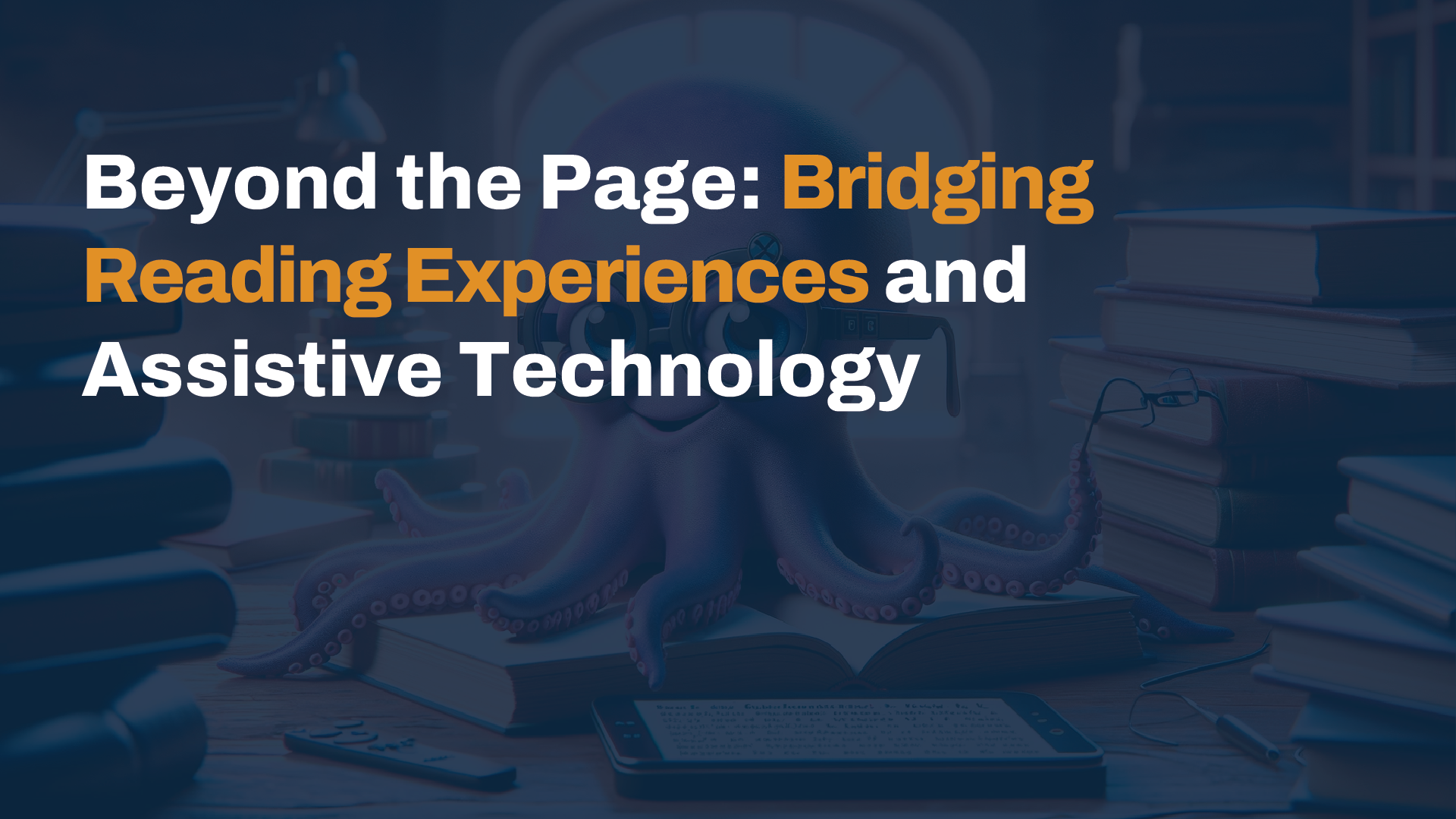Written By: Shristi Chitlangia, Software Engineer
Among life’s quiet treasures, nestled between the worn pages of cherished stories, lies the ineffable essence of books—an invitation to embark on journeys unknown, to explore realms both real and imagined and to find solace in the embrace of words woven into magic. This was the experience for many like me that led us to become avid readers with libraries and books as our best friends. Now in a digital world, E-Readers and Online Databases like Google Books have made books, magazines, and publishing more globally available like none seen before. Google Books’ approach to the democratization of knowledge revolutionized the way we accessed books forever. However, there is a limitation, it is primarily only accessible by mouse input and keyboard input.
A Need for Innovation
According to the World Health Organization (WHO), more than 2.5 billion people globally need one or more assistive products. With the rise of an aging population and chronic diseases, the WHO estimates 3.5 billion people may need assistive technology by 2050. This is where Cephable’s core values of impactfulness, openness, and playfulness come in, sparking a need to innovate in the space and address digital areas that can be improved with assistive technology.
Onboarding Hackathon
At Cephable, for a new engineer on the team (like me), the training involves an onboarding hackathon project which is a solo one-week sprint to familiarize myself with the Cephable codebase and apply it to any area of personal interest. This is a cool way of bridging personal hobbies to prototyping a solution for a real-world problem and getting more comfortable with Cephable’s code. Thus, emerged the sweet spot for me — create a hack that improves the digital reading experience to be more inclusive.
The Technical Implementation
Here was my Hackathon Idea: Integrate Google Books with Cephable to support multi-modal inputs of searching, filtering, previewing, and buying books. I chose Google Books as my benchmark since Google has reliable and easy-to-use public developer API and SDK that makes it relatively easy to integrate with 3rd party applications, like Cephable. However, since Google Books does not allow for a 3rd party application to integrate directly into the site itself, I had to take a creative approach to developing an interim website. Here’s how it works:
- Cephable’s application takes user inputs in the form of virtual buttons and voice control to search for a book
- The interim website takes the commands provided and creates request tokens to Google Books API with the requested query information
- Google Books API upon success gives a response token containing a list of data, where each object is a book volume relevant to the search
- The interim website parses through this list and creates a front-end rendering that the user can interact with
- This process repeats as the user continues to preview the rendered books, gather more information, and take the next steps to buy or read the book
A Demo
Like all other hackathons, the project is not fun or considered a success unless there is an end-to-end working demo. I won’t disappoint you either – here is a demo of me using Cephable’s virtual buttons on my phone and mic on the desktop to create a more accessible reading experience (searching a book, previewing the results, gathering more info like sale price and genre, reading a sample book, and taking the next step to possibly buy the book).
What’s Next?
This was an exploratory onboarding project to see how to integrate Google Books with Cephable. The development proved that an integration with search databases and E-Readers is possible, thus expanding the horizon of what Cephable can be integrated with and how it can be used. For me, my inner avid reader and developer jumps in excitement at the intersection of two, and the possibility of embarking on more unknown journeys. Be right back, I need to finish another chapter of this book I am reading!
Interested in the Cephable Team’s Book Recommendations?
Fiction
- The Winter Garden by Kristin Hannah [Book Preview]
- Homegoing by Yaa Gyasi [Book Preview]
- Lord of the Rings by John Ronald Reuel Tolkien [Hobbit and LOTR Collection]
- Jitterbug Perfume by Tom Robbins [Book Preview]
- The Midnight Library by Matt Haig [Book Preview]
- The Measure by Nikki Erlick [Book Preview]
Engineering and Accessibility
- Hacking the Xbox by Bunnie Hwang [Free Ebook]
- Every Tool is a Hammer by Adam Savage [Book Preview]
- The Ability Hacks by Greg Shaw, Jenny Lay-Flurrie, and Peter H. Lee [Amazon Link]
Disability
- Remember: The Science of Memory and the Art of Forgetting by Lisa Genova [Amazon Link]
- Year of the Tiger: An Activist’s Life By Alice Wong [Book Preview]
- Disability Visability: First-Person-Stories-From-The-Twenty-First-Century by Alice Wong [Book Preview] [Disability Visability Project]
- Demystifying Disability: What to Know, What to Say, and How to be an Ally by Emily Ladau [Book Preview]
Other Favorites
- The 32nd Mersenne Prime Predicted by Mersenne by David Slowinski [Amazon Link]
Subscribe to Our Newsletter
Subscribe to our InkSights newsletter for updates, the latest innovations in AT, community announcements, and more!

